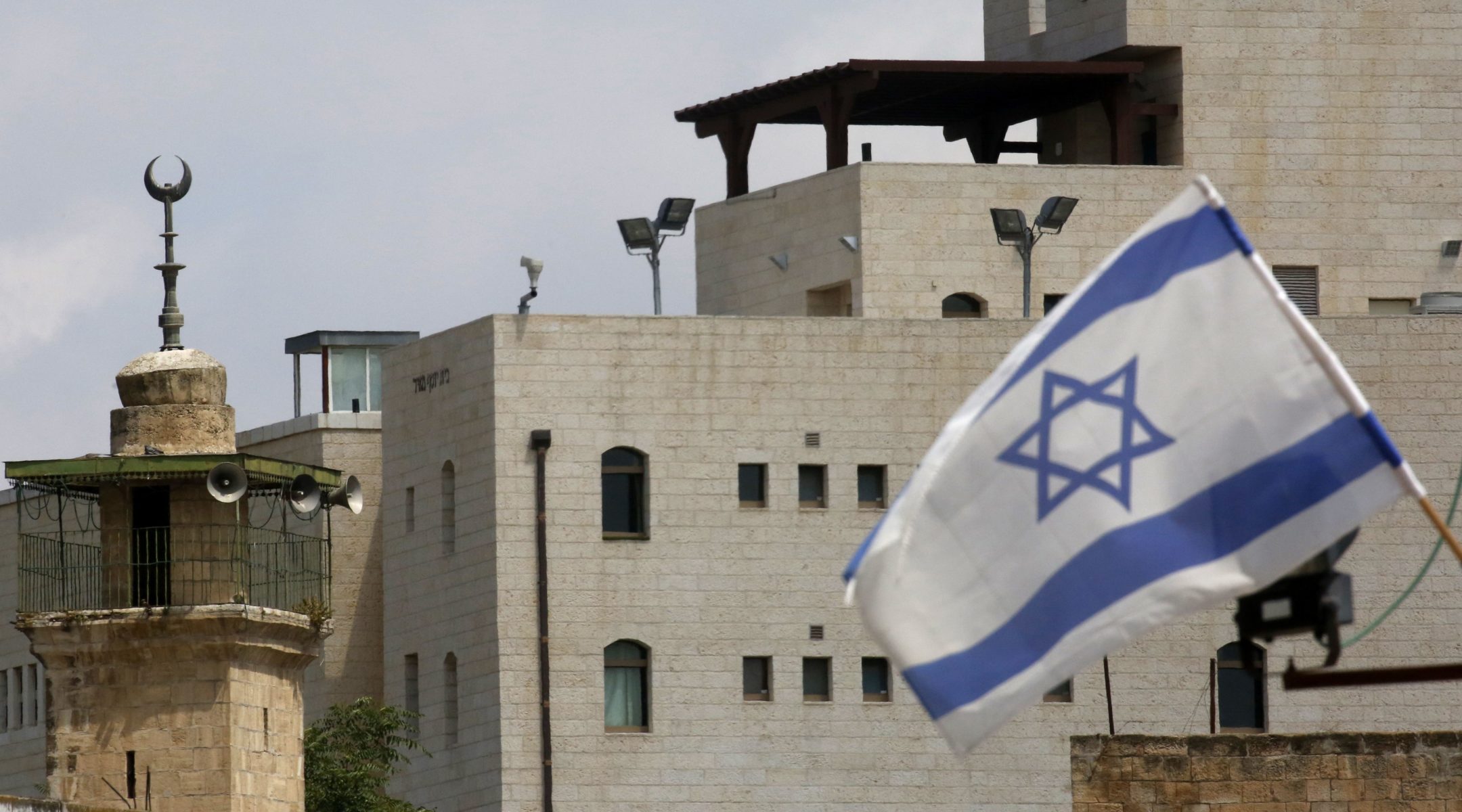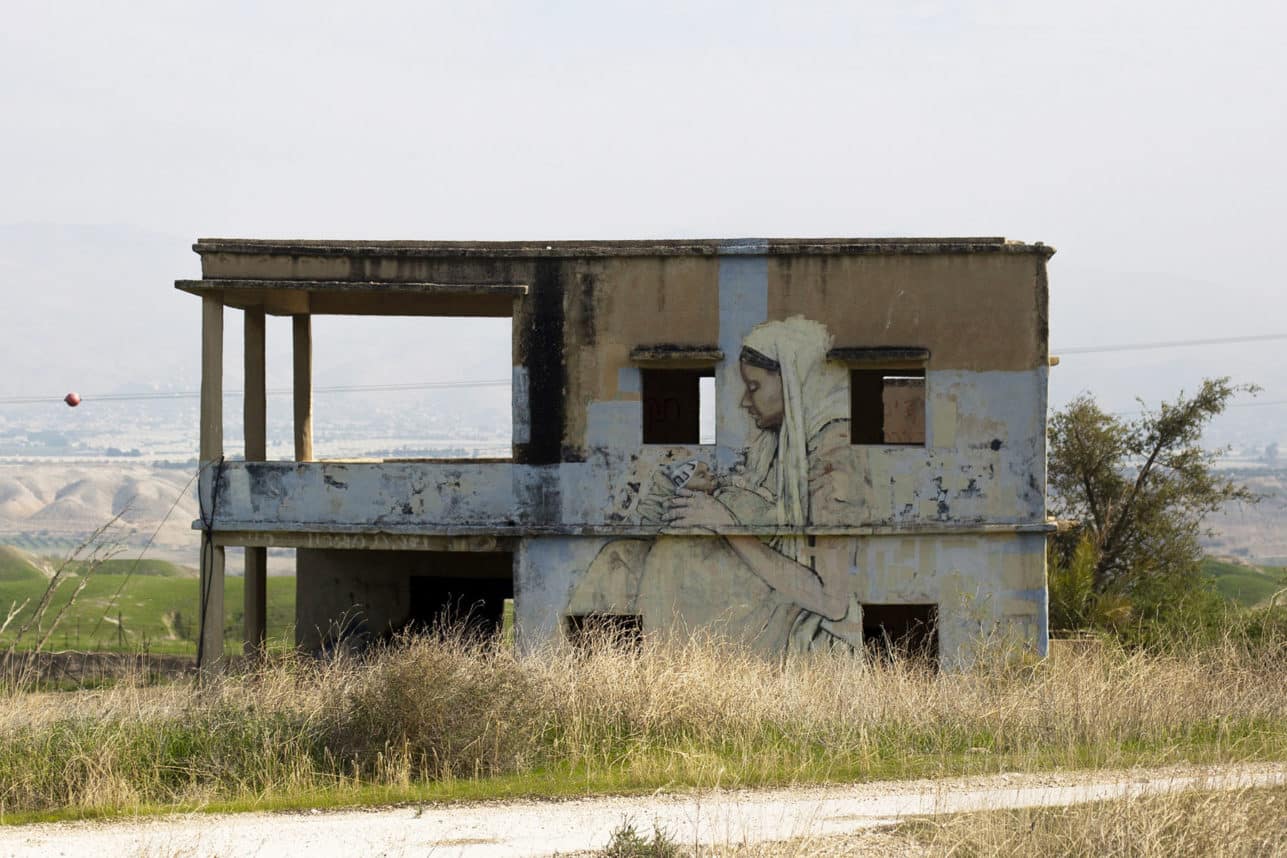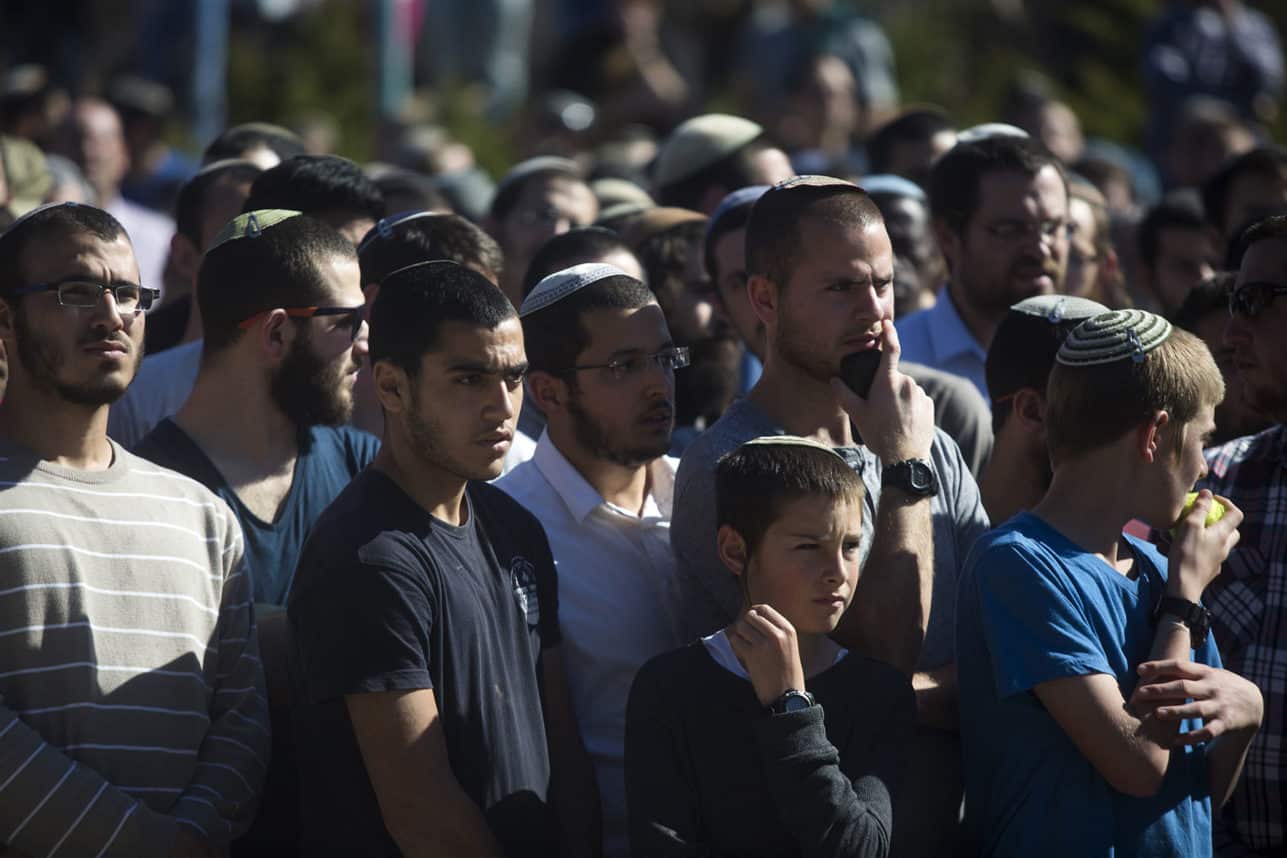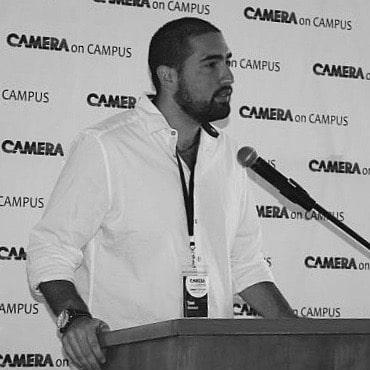 An Israeli flag is pictured near the minaret of a mosque at an Israeli settlement in the the old city of the West Bank town of Hebron on June 14, 2019. (Photo credit HAZEM BADER/AFP/Getty Images)
An Israeli flag is pictured near the minaret of a mosque at an Israeli settlement in the the old city of the West Bank town of Hebron on June 14, 2019. (Photo credit HAZEM BADER/AFP/Getty Images) During a seminar in my graduate program in Israel, a professor concluded a lecture on terrorism and political violence claiming: “The tears of a grieving Palestinian mother, whose son was responsible for carrying out a suicide attack are equal to the tears of an Israeli mother whose son fell in service to the country.”
It took me a while to understand that the statement itself was not really problematic. The issue was that there was no follow-up with what needed to be said: while the mothers may feel an equal amount of sorrow, the world must never draw a moral equivalence between the terrorist and the soldier. This rule must apply to the stakeholders of any armed conflicts and the reason is simple: The frequency and normalization of terrorism, as a legitimate tactic of resistance, will increase unless it is universally condemned and categorized as an unjustifiable evil.

While their mothers may feel an equal amount of sorrow, the world must never draw a moral equivalence between the terrorist and the soldier.
This is exactly what Combatants for Peace, an Israeli nongovernmental organization (NGO) founded in 2006, is failing to do. The organization’s goal, as it is introduced to the general public, is very appealing:
“Raise the consciousness in both publics regarding the hopes and suffering of the other side, and to create partners in dialogue.” “Educate towards reconciliation and non-violent struggle in both the Israeli and Palestinian societies.” “Create political pressure on both governments to stop the cycle of violence, end the occupation and resume a constructive dialogue.”
Understanding one another’s narrative is a beautiful message. But what is the price, proposed by Combatants for Peace? Accept the false premise that Israel’s presence in the West Bank (“occupation”) is the source of the Israeli-Palestinian conflict. Not only does this erroneous premise label Israel as an aggressor but it categorizes the Palestinians as victims of that foreign aggression. By proposing such an outrageous premise, that is unfortunately widely accepted, Combatants for Peace is able to host its annual and most controversial event: a joint- Israeli-Palestinian memorial ceremony on the eve of Israel’s Memorial Day for her fallen soldiers. (To grasp how controversial this annual event is, imagine an American NGO hosting an event every year with the families of fallen US soldiers and the families of Taliban members killed during the war in Afghanistan.)

While this event has been held every year for the past decade, it remains widely controversial and unpopular in Israel. The most common criticism was exemplified by Israel’s former Minister of Defense Avigdor Liberman who announced:
“I will not lend my hand to the desecration of Memorial Day. This is not a ceremony but an exhibition of bad taste and lack of sensitivity that hurt the bereaving families we hold dear.”
This reaction from a government official should not come as a surprise. After all Yonatan Shapira, founder of Combatants for Peace, repeatedly referred to Israel’s military as a terrorist organization and has accused Israel of engaging in massacres.
Combatants for Peace’s rhetoric and attempts to legitimize Palestinian terrorism transcend the Israeli public. For the last couple years, J Street, the liberal advocacy group operating on significant sectors of the progressive Jewish American community, has endorsed Combatants for Peace. It even announced its role in co-sponsoring this year’s joint ceremony.
While J Street’s decision to co-sponsor this event is not groundbreaking news, the organization did surprise by issuing its first presidential endorsement of Democratic candidate Joe Biden. Biden, a few hours later, welcomed the endorsement:
“I’m honored to have earned J Street’s first-ever presidential endorsement. J Street has been a powerful voice to advance social justice here at home, and to advocate for a two-state solution that advances Middle East Peace. I share with J Street’s membership an unyielding dedication to the survival and security of Israel, and an equal commitment to creating a future of peace and opportunity for Israeli and Palestinian children alike.”
How can the stakeholders of the conflict’s peace process hope to achieve any meaningful progress if they continue to dismiss Palestinian terrorism?
How can the stakeholders of the conflict’s peace process hope to achieve any meaningful progress if they continue to dismiss Palestinian terrorism? There can be no moral equivalency drawn between Israel’s military and Palestinian terrorists who indiscriminately target civilians or between Israel’s military, which does everything to preserve the value of life (on all side of the battlefield) and Palestinian terrorists who have been indoctrinated all their lives to believe that Jews are responsible for their people’s suffering. There can be no moral equivalency between the most moral military in the world, to Palestinian leaders who chose to name schools after former terrorists.
Any attempt to understand the conflict, by seeking to establish a moral equivalence between the Middle East’s only liberal democracy and an oppressive Arab dictatorship, which continues to dilute Nazi-style propaganda, is bound to fail.
More importantly, any organization involved in the establishment of this false moral equivalency, indirectly contributes to the continuation of the cycle of violence.
Yoni Michanie is a former IDF paratrooper and has an MA in diplomacy and international security from IDC Herzliya. He is a campus advisor and strategic planner for the Committee for Accuracy in Middle East Reporting and Analysis (CAMERA).























 More news and opinions than at a Shabbat dinner, right in your inbox.
More news and opinions than at a Shabbat dinner, right in your inbox.